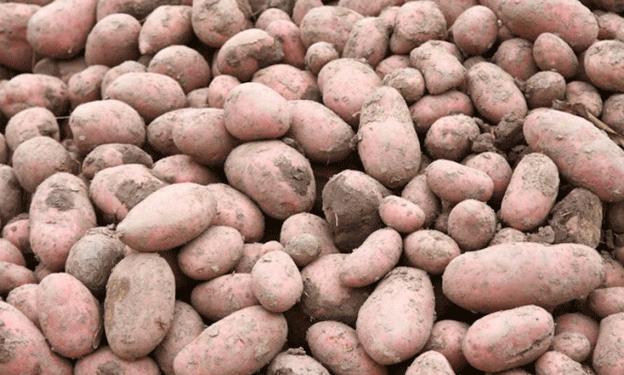Kaliningrad’s agricultural sector has plenty to celebrate this November as the region’s farmers harvested an impressive 90,000 tons of potatoes—a 32% increase from the previous year. The Ministry of Agriculture of the Kaliningrad region shared this achievement on its official VKontakte page, attributing the success to strategic investments and expanded cultivation efforts.
This year, the total area allocated for potato farming grew significantly, from 3,000 to 4,000 hectares. According to officials, this 33% expansion was primarily driven by a large-scale investment initiative led by the “Atlantis” agricultural group. This investment project focuses on producing potatoes for the fast-growing French fry market, a segment with high commercial value and increasing demand both locally and internationally.
Vegetable and Fruit Successes
In addition to the impressive potato harvest, Kaliningrad’s farmers have also seen a 46% rise in open-field vegetable yields, reaching 25,000 tons. Crops like cabbages, carrots, and beets have particularly benefited from better field management and investment in farming technology. The region’s fruit and berry production has also grown by 20%, with a total yield of 6.4 tons. These figures suggest that Kaliningrad’s agricultural output is becoming more robust and diversified, positioning the region as a critical player in meeting local food demands.
Investment and Land Management as Key Drivers
The growth in potato and vegetable yields is largely credited to the strategic expansion of cultivated land and the adoption of modern agricultural practices. The Ministry of Agriculture emphasized that this year’s favorable outcomes are the result of long-term planning, substantial investments, and the resilience of local farmers.
The expansion of planting areas has had a significant impact. The “Atlantis” group’s investment in potato farming, focused on French fry production, has proven to be a key driver of this year’s agricultural success. French fries have become a lucrative product as the global market for convenience foods continues to grow, especially in urban areas.
Challenges and Opportunities
Despite the successes, harvesting continues in several areas, particularly for late-season vegetables and potatoes. The region still faces challenges such as unpredictable weather patterns and the need for better storage infrastructure to preserve the high-quality yields. However, this year’s results demonstrate that the region is on a promising path toward greater agricultural self-sufficiency and economic vitality.
Agricultural engineers and agronomists note that with continued investments and a focus on sustainable farming practices, the Kaliningrad region could further increase its agricultural output. The expansion of infrastructure for storage and distribution, as well as ongoing research into high-yield, disease-resistant crop varieties, will be essential to maintain this upward trend.
Kaliningrad’s impressive agricultural achievements in 2024 are a testament to the power of strategic investment and expanded cultivation. With potato yields up by 32%, vegetable harvests increasing by 46%, and fruit production growing by 20%, the region is setting a new standard for productivity. As farmers and agricultural engineers look forward, the focus will be on maintaining these gains through sustainable practices and continued innovation.







